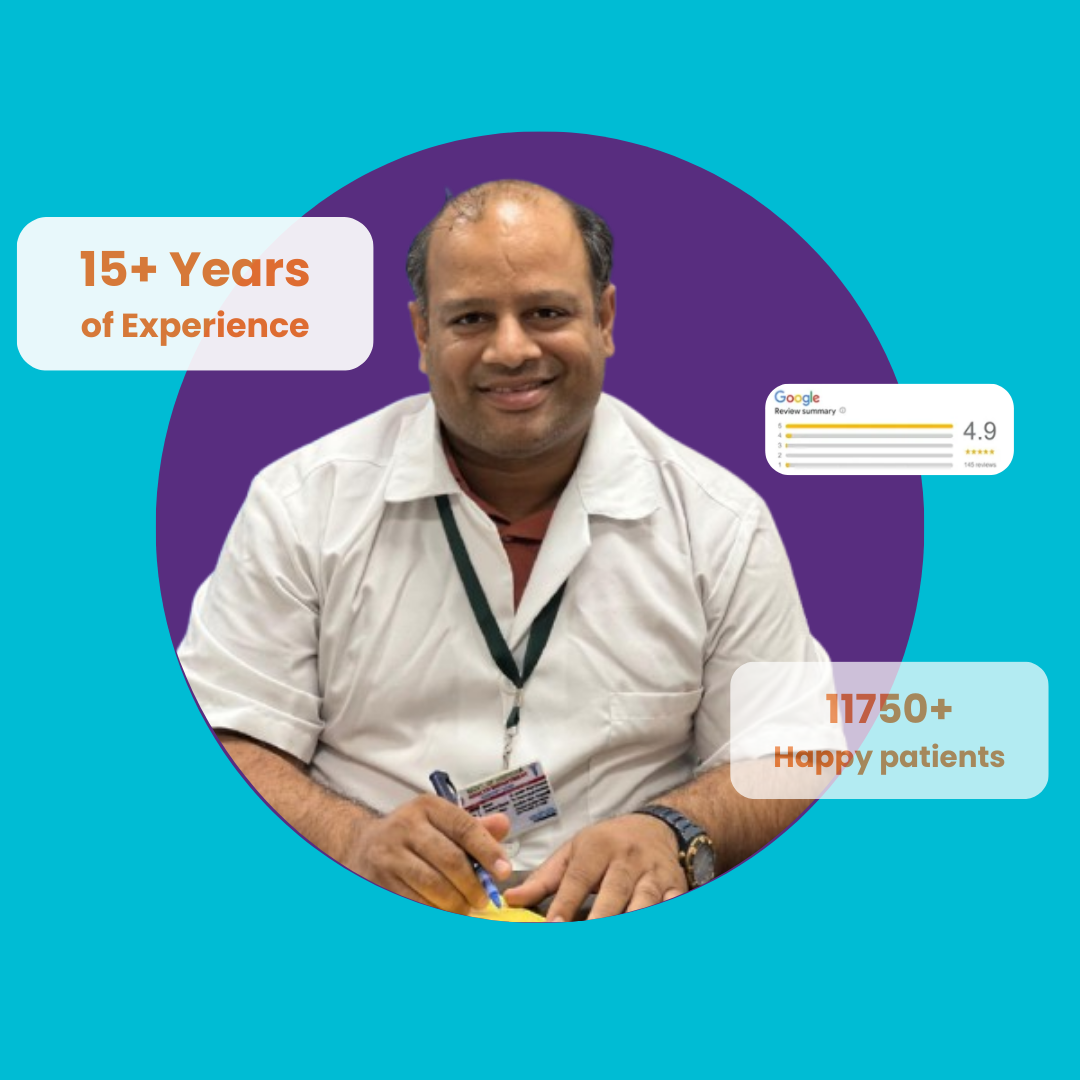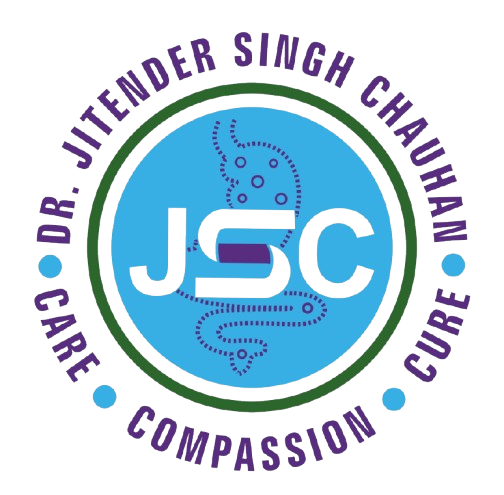Dr. Jitender Singh Chauhan
Best Onco Surgeon in Haryana
This is where Dr. Jitender Singh Chauhan steps in as one of the most trusted Gastro Surgeons and Oncology experts in Haryana, with over 15 years of experience in treating various complex gastrointestinal and oncological conditions. Dr. Jitender Singh Chauhan stands out among other specialists in Haryana due to his extensive training, compassionate care, and dedication to providing the best surgical outcomes for his patients.


Dr. Jitender Singh Chauhan
Dr Jitender Singh chauhan is the leading liver cancer specialist in India. He has treated hundreds of patients with liver cancers. He has more than 15+ years of experience in treating liver cancer.
Management of liver cancer involves proper diagnosis & early treatment. Diagnosis is performed with Triple phase CT scan & AFP level. The treatment involves surgery, chemotherapy, TACE, TARE or RFA.
Trusted Name
11500+ satisfied patients
Rich Experience
Having 15+ years of experience
Safe Surgical Hands
1000+ successful operations performed
Dr. Jitender Singh Chauhan experience as a hepatobiliary cancer surgery doctor
Dr. Jitender Singh Chauhan, a highly experienced and skilled GI cancer specialist and surgical oncologist, is based in Ambala Cantt, Haryana, India. Known for his exceptional surgical precision and compassionate patient care, Dr. Chauhan has established himself as a leading expert in gastrointestinal cancer surgeries. His expertise spans across treating complex cases involving liver, stomach, pancreas, and colorectal cancers, positioning him as one of the top oncologists in the region.
Dr. Jitender Singh Chauhan is recognized not only as a leading GI cancer specialist in Ambala Cantt, Haryana but also across the state and beyond. Known for his exceptional surgical precision, Dr. Chauhan’s expertise spans a wide array of advanced surgical techniques, tailored to achieve the best possible outcomes for patients with complex gastrointestinal cancers. His commitment to innovation and patient care ensures that his approach is both cutting-edge and minimally invasive.
Dr. Jitender Singh Chauhan’s pioneering contributions in gastrointestinal cancer surgery have established him as a leader in the field, particularly across Haryana and India. His innovative approaches to surgical interventions, combined with his vast expertise in complex GI cancer surgeries, position him as a preferred choice for individuals seeking advanced and compassionate cancer care.
Stages and Staging of hepatobiliary cancer
Hepatobiliary cancer includes cancers of the liver, gallbladder, and bile ducts. Understanding the stages of cancer is crucial for determining the appropriate treatment plan. There are four primary stages of hepatobiliary cancer:
Stages
Stage 0:
This is also known as carcinoma in situ, where abnormal cells are found only on the innermost layer of the liver, gallbladder, or bile ducts. The cancer has not yet spread beyond this layer.
Stage 1:
At this stage, the cancer has started to grow beyond the innermost layer and has invaded the muscle or connective tissue around the organ. However, it has not spread to nearby lymph nodes or other distant organs.
Stage 2:
In Stage 2, the cancer begins to invade nearby tissues or organs such as the liver, bile ducts, or the abdominal lining. It may or may not have reached the nearby lymph nodes at this stage.
Stage 3:
Cancer at this stage spreads extensively into nearby lymph nodes, as well as tissues and organs beyond the affected area. This includes organs such as the liver, blood vessels, or the lining of the abdomen.
Stage 4:
This is considered advanced hepatobiliary cancer, where the cancer has spread to distant organs such as the lungs, bones, or distant lymph nodes. It may involve multiple organs within the abdomen or pelvis.
Diagnostic Tools for Hepatobiliary Cancer
Accurate diagnosis and staging are critical in managing hepatobiliary cancers, including those of the liver, gallbladder, and bile ducts. Below are key diagnostic tools used to evaluate these cancers:
CT Scan
A CT scan (computed tomography scan) is an advanced medical imaging technique that uses X-rays and computer processing to generate detailed cross-sectional images of the body. It provides critical information about internal structures and organs, helping doctors to identify tumors, assess the extent of disease, and determine the staging of hepatobiliary cancers. CT scans are instrumental in diagnosing liver, gallbladder, and bile duct cancers, allowing for precise treatment planning.
PET-CT Scan
A PET-CT scan (positron emission tomography-computed tomography scan) combines two imaging technologies to offer a comprehensive view of cancerous activity in the body. In this procedure, a small amount of radioactive material is injected into the body, which highlights areas of high metabolic activity, commonly seen in cancer cells. PET-CT scans are especially useful for staging hepatobiliary cancers, detecting metastasis, and evaluating the response to treatment, providing doctors with critical insights for personalized care.
Blood CA 19-9 Level
The CA 19-9 blood test measures levels of a tumor marker associated with certain cancers, including gallbladder, pancreatic, and bile duct cancers. Elevated CA 19-9 levels can suggest the presence of hepatobiliary cancer, though this marker is not specific and can also be elevated in benign conditions. Monitoring CA 19-9 levels is useful for diagnosing cancer and assessing the effectiveness of treatment over time.
Staging of Hepatobiliary Cancer
Staging determines the extent of cancer’s spread and is crucial for developing an effective treatment plan. For gallbladder cancer, the staging process typically involves the following:
- Stage 0: Cancer is confined to the innermost layer of the gallbladder (carcinoma in situ).
- Stage 1: Cancer has grown beyond the innermost layer and into the muscle or connective tissue but has not spread to nearby lymph nodes or organs.
- Stage 2: Cancer has spread further into nearby organs, such as the liver or bile ducts, and may or may not have reached nearby lymph nodes.
- Stage 3: Cancer has spread to nearby lymph nodes and other organs, such as the liver and the lining of the abdomen.
- Stage 4: The most advanced stage, where cancer has metastasized to distant organs, such as the lungs or bones, or multiple organs within the abdomen or pelvis.
Treatment Methods for Hepatobiliary Cancer
Surgery
Surgery is often a critical component in the treatment of hepatobiliary cancer. Dr. Jitender Singh Chauhan is a renowned expert in hepatobiliary surgeries, employing advanced techniques to remove cancerous tissues while preserving as much healthy tissue as possible. He tailors each surgical procedure based on the cancer stage, tumor location, and the patient’s overall health to ensure the best outcomes.
Chemotherapy
Chemotherapy is another option, particularly for advanced stages of hepatobiliary cancer. Dr. Jitender Singh Chauhan collaborates closely with oncologists to design personalized chemotherapy plans that target cancer cells and slow down their progression.
Why Choose Dr. Jitender Singh Chauhan?
Dr. Jitender Singh Chauhan, a highly experienced and skilled GI cancer specialist and surgical oncologist, is based in Ambala Cantt, Haryana, India. Known for his exceptional surgical precision and compassionate patient care, Dr. Chauhan has established himself as a leading expert in gastrointestinal cancer surgeries. His expertise spans across treating complex cases involving liver, stomach, pancreas, and colorectal cancers, positioning him as one of the top oncologists in the region.
Dr. Jitender Singh Chauhan, a highly respected onco surgeon in Haryana, leads a dedicated and expert team at his practice. Working alongside experienced medical oncologists, radiation oncologists, and interventional radiologists, Dr. Jitender Singh Chauhan provides comprehensive care for patients dealing with various cancers.
Dr. Jitender Singh Chauhan, a highly esteemed onco surgeon in Haryana, is renowned for his expertise in managing advanced stages of cancer, including the complex treatment of stage 4 cancers. With a focus on gastrointestinal (GI) cancers, Dr. Chauhan’s practice provides a wide range of cancer care services, including chemotherapy and surgical interventions.
Frequently Asked Questions
While early-stage hepatobiliary cancers can often be treated successfully with surgery, advanced cases may require a combination of therapies such as chemotherapy or radiation.
Diagnosis typically involves imaging tests like CT scans, MRI, or ultrasound, along with blood tests and possibly a biopsy to confirm the presence of cancer cells.
A surgical oncologist with expertise in gastrointestinal and hepatobiliary cancers, like Dr. Jitender Singh Chauhan, is the best option for treating these complex cancers.
Hepatobiliary cancers generally occur in older adults, but the risk can vary depending on factors like family history, lifestyle, and existing liver conditions.
The rate of spread depends on the type of cancer and its stage at diagnosis. Early detection is key to improving survival rates.
New treatments, including targeted therapies and immunotherapy, are being researched and can offer additional options for patients with advanced cancer.
While Stage 4 cancer is advanced and often difficult to cure, treatment can still help manage symptoms, slow the cancer’s progression, and improve quality of life.

